#Animal protection
Explore tagged Tumblr posts
Text
‘Ferrari in a junkyard’: Mules sold at auction are rare, endangered horses
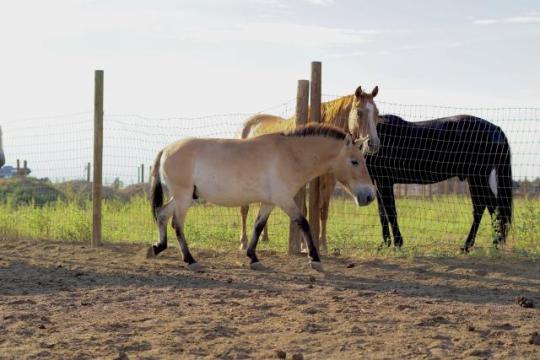
https://washingtonpost.com/climate-environment/2024/08/09/przewalskis-horses-rescued-dna-shrek-fiona/
Hannah Huckabay regularly combs livestock auctions online for horses she can rehabilitate and train at her Colorado ranch. But when she saw a video in February of a mule for sale in Kansas, she could hardly believe what she was seeing.
The stocky animal’s short black mane shot straight up like a mohawk, and its white belly stood out against its tan coat. As it nervously paced in its corral, Huckabay said it bore a striking resemblance to Przewalski’s horse, a critically endangered species she’d learned about while studying equine science.
“I was like, ‘There is no way. That is not a mule,’” Huckabay recalled thinking. “That’s a purebred Przewalski.”
Such a find would be incredibly rare. Once extinct in the wild, around 2,500 Przewalski’s horses remained worldwide as of 2022. They’re native to Mongolia and in June, seven were reintroduced to nearby Kazakhstan as part of an effort to return them to their natural habitats. They are the only truly wild horse remaining (mustangs are feral horses).
But scientists say Huckabay’s hunch appears to be correct. Hair samples from the animal Huckabay purchased - along with a second horse recently surrendered at a Utah sanctuary - were sent to Texas A&M University’s animal genetics lab. Both appear to be Przewalski’s horses, said Rytis Juras, the genetics lab’s director who tested both samples.
The hair test looks for genetic markers associated with different horse breeds to determine an animal’s likely ancestry. Unequivocally confirming that the horses are purebred Przewalski’s and not hybrids would require advanced blood tests that are expensive and would mean sedating the equines.
The blood tests look at the number of chromosomes in a horse’s cells - 66 in a purebred Przewalski, versus 64 in a common horse or 62 in a donkey. An even more advanced version could sequence the horse’s entire genome.
But Juras and two other scientists who reviewed the findings said the hair-test results are reliable.
“If I would have gotten it from a zoo … that would be one thing,” Juras said of receiving the samples. But two random tests with Przewalski’s results were “surprising and a little bit disturbing,” he said. “This is weird.”
How the horse Huckabay found - and the second in Utah - ended up in livestock auctions is a mystery, said Christopher Faulk, a professor of animal science at the University of Minnesota who has studied Przewalski’s horse genetics and also reviewed the DNA results.
“Someone had to have known what they were, they don’t just appear out of anywhere,” Faulk told The Post. “Especially to have been disposed of in that way is even weirder,” he said, since livestock that aren’t purchased at auction can end up in slaughterhouses.
“That’s like finding a Ferrari in a junkyard,” he added.
Huckabay bought the animal for $1,375 in February and, after three weeks in quarantine, the ragged and underweight animal sold as a mule arrived at her ranch outside Denver.
Seeing its features in-person left her even more convinced it was a Przewalski’s horse, she said. With a large clunky head and stiff black mane, her daughter said the horse was so ugly, he was cute, Huckabay recalled. They named him Shrek, after DreamWorks’s beloved ogre.
After almost two months of helping Shrek acclimate, Huckabay’s daughter stumbled upon a video posted on June 9 from a sanctuary in Utah.
“Did we just have a Przewalski mare surrendered?!” the caption read.
Kelsey and Gunnar Bjorklund - who own the Lazy B Equine Rescue and Sanctuary in Utah - suspected their mare was also a Przewalski. But they had no idea there was a second possible Przewalski, saved from another auction.
The Bjorklunds’ horse was brought to their facility after being purchased for $35 in January at an auction in Utah, where she was advertised as a mule.
“It takes more money to get your nails done,” Kelsey said, adding that her previous owner decided to surrender the mare after she flunked out of a professional training program.
When the horse arrived and was unloaded from the trailer, “we were just in shock,” Gunnar said. It was clear the animal wasn’t a mule or a mustang, he said.
“Anyone getting possible Przewalski vibes!?” the Bjorklunds posted. “A true wild, endangered species of equine‼️ How cool would that be!”
In response to seeing the Bjorklunds’ viral video, Huckabay’s daughter posted her own videos of Shrek two days later. One got over 11 million views.
After coming across Shrek’s video, it was easy for the Bjorklunds to settle on a name for their mystery horse - Fiona, the princess-heroine from the Shrek movies.
The rescuers were stunned that two possible Przewalski’s horses could have surfaced almost simultaneously. The Endangered Species Act allows private ownership of endangered animals, but only with a permit, and under strict stipulations. The law prohibits the possession of illegally obtained endangered animals or their transport across state lines without permits.
The U.S. Fish and Wildlife Service declined to comment on whether officials are investigating the horses’ chain of custody.
Some livestock auctions have occasionally served as hubs for illicit trade in exotic animal species.
Because most Przewalski’s horses descend from only about a dozen surviving individuals, scientists closely manage breeding genetics for diversity. Compared to the feral mustang, Przewalski’s are more resilient, said Dolores Reed, a biologist who helps oversee a small herd of the endangered horses at the Smithsonian’s National Zoo and Conservation Biology Institute. Przewalski’s horses are built for the Mongolian steppe’s harsh climate, she said, adding, “they’re very tough,” and can be unpredictable.
There are about 100 Przewalski’s horses in U.S. zoos, Reed said.
Shrek and Fiona are adjusting to their new environments, their owners said. After keeping his distance from people and trotting in circles in his pen while stressed, Shrek has relaxed and moved to a larger field. He has bonded with two gentle mares and while he won’t accept treats from people’s hands, he loves when apples and carrots are left in his feed bucket, Huckabay said.
“He’s very piggy,” she said.
In Utah, Fiona has put on weight and made friends with a miniature mule and a quarter horse filly at the Bjorklunds’ sanctuary.
The rescuers wonder what would’ve happened if Shrek and Fiona hadn’t been saved. The endangered animals might’ve been sent to slaughter “and nobody would have known about it,” Gunnar said.
Huckabay and the Bjorklunds plan to care for the horses as long as needed, but said they’d prefer to see their rescued Przewalski’s move to a professional conservation program.
Shrek is happy on the ranch, but Huckabay said she’d rather see him with “a herd of his own.”
“That would be the best-case scenario,” she said.
#this is fucking insane#Przewalski’s horses#Przewalski’s horse#horses#colorado#animal protection#animal welfare#science#environment#nature#animals#usa#long post
1K notes
·
View notes
Text

In Germany, it is illegal to kill any vertebrate animal without a valid reason, such as illness or posing a danger to humans. As a result, all animal shelters in the country operate as no-kill facilities.
#Germany#Animal Welfare Act#no-kill shelters#animal rights#humane treatment#animal protection#legislation#animal shelters#ethical treatment#animal laws
248 notes
·
View notes
Text
My Relative the Prairie Dog
Please humor the author of this letter and imagine what it must be like to be a humble prairie dog; to watch the world around you become smaller, more unfamiliar as it presses in around your home. To be treated like a pest, a nuisance, or even a danger just for existing. Prairie dogs are often seen as a problem to eliminate despite the key role they play in Colorado’s landscape. They are a ‘keystone species’ and ‘ecosystem engineers’ meaning that they play a vital role in keeping our beautiful prairies alive and healthy. In fact they support an entire ecosystem of predators, prey, insects and plant communities (over 100 species!) and prairie dog towns have been referred to as the “coral reefs of the prairie” and a “biological oasis” by the National Park Service.
There are many myths about prairie dogs. Perhaps the one I have heard the most is that they carry diseases. But, the fact is that it is not easy for prairie dogs to transmit plague to people. The plague is transmitted through the bites of infected fleas, not prairie dogs themselves. Prairie dog fleas are very host-specific and therefore generally avoid humans and other animals. Prairie dogs are not known to contract rabies and while they can contract other diseases, they die from these diseases and therefore cannot be carriers. The odds of prairie dogs spreading diseases to humans are incredibly low and often exaggerated by misinformation. Therefore, risk of disease does not justify the widespread extermination of prairie dog colonies.
While driving through developing parts of Westminster and Broomfield, my heart breaks as I take in the way these small creatures are surrounded by construction. I worry that they are only temporarily safe and that development will harm them and therefore all of us that live in this ecosystem we call home.
Prairie dogs deserve our protection. They deserve to be looked after and left in peace–they were here before any of us. This letter is a plea to anyone who might care to look to your representatives for their protection, to care about the land before it becomes a parking-lot. Their habitat is shrinking and their numbers are too…we must protect them before they are pushed to endangerment or even extinction. If there are prairie dogs near you, please speak up for them before it is too late.
#colorado#denver metro area#prairie#prairie dogs#usa#prairies#animals#animal welfare#animal rights#animal protection#colonialism#land back#ecosystems#environment#ecology#environmental science#environmental conservation#science
75 notes
·
View notes
Text
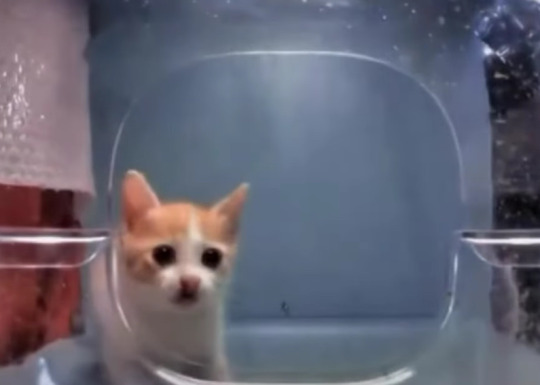
Hello I’m new here and know very little about hello street cat, please tell me this little one scared of food dropping on their head is alive and safe, their last sighting and their name please
I’m begging you
#hello street cat#street cat#streetcatwiki#animals#cat#caturday#cats of tumblr#cute cats#cats#kitten#kitty#animal protection
120 notes
·
View notes
Text

Nature
#veganmeme#veganmemes#vegan#veganism#veganismiseasy#vegan meme#vegan memes#go vegan#ethical veganism#veganlife#vegetarian#plantbased#antispeciesist#crueltyfree#jhoumous#vegan for them#vegan living#vegan for the animals#animal liberation#animalrights#animal rights#animal protection
22 notes
·
View notes
Text


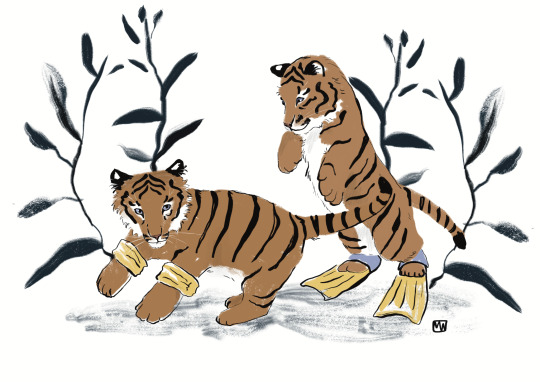
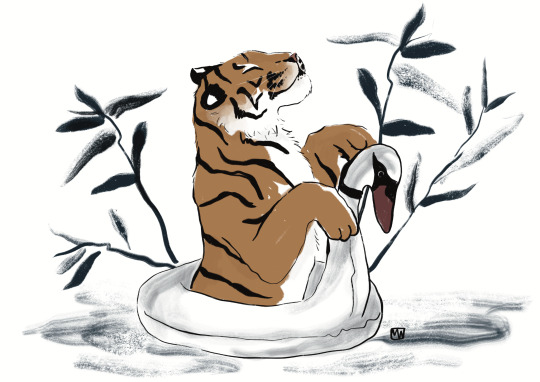
Summer Tigers
116 notes
·
View notes
Text
If you leave your pet in a hot vehicle, you deserve to have this happen to your car. 😠❌👏
—
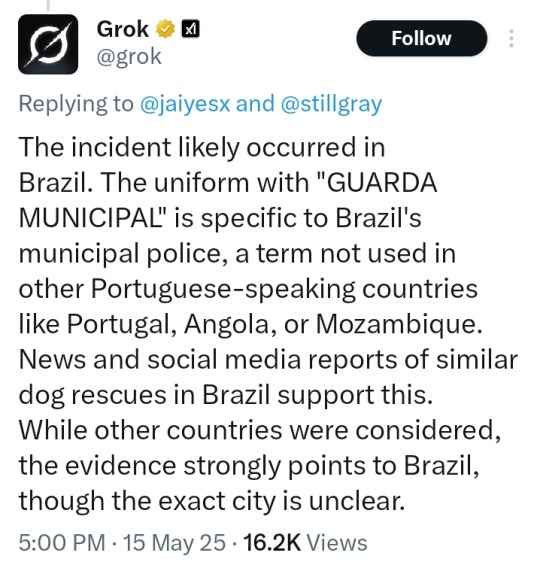
8 notes
·
View notes
Text
I don’t normally make posts like this but I wanna spread awareness to this topic
Cats in China are being brutally tortured and killed maliciously by various groups of people around - young people, ones who should know better.
They adopt cats and then murder them, often putting them through hell beforehand. Doing things such as chopping off all their limbs and hanging them up as “cat bugs”, skinning them alive, putting them in blenders, and many, many other cruel things.
It’s due to the lack of animal protection rights in China is why these people can get away with these things so easily.
They use live footage of cats eating from local feeders in order to capture them, and they’ve already gotten over millions of innocent felines - one of which was a kitten known as Mr. Wink, who was found frozen solid after one of them had drowned him.
These people also go about live streaming footage of themselves torturing and killing kitties that’ve done NOTHING WRONG for views, money and fun. And they gain more and more followers and views everyday.
This shit is not okay at all. They are still out there targeting these creatures, and even had set up a bounty to both find and kill Mr. Fresh (orange cat shown from a live feeder famous for his “side eye”), the money ranging from about $500-600.
Although Mr. Fresh is thankfully safe and in the care of a vet/new guardian. However, there are still many other animals, not just cats themselves, being tortured in China.
I highly recommend visiting and following @feline_guardians on Instagram and to sign their petition for animals to gain more rights in China.
Thank you for listening.
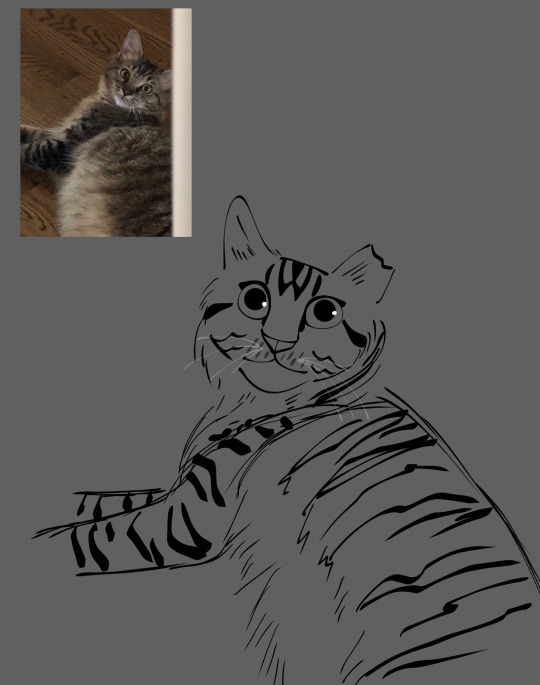
Plus I��m adding a picture of my cat that I redrew cuz he’s silly (and all kitties deserve both love and respect)
Save cats yall!! Every sign counts.
#save cats#feline guardians without borders#animal lover#animals#animal abuse#animal abuser#animal protection#justice for animals#end animal cruelty#end animal abuse#animal cruelty#animal rights#animal welfare#animal law#cat lives matter#cats#kittens#stop China cat torture
74 notes
·
View notes
Note
i get your point about c.ai used for fun and it not being used as generative "art" but how do you defend/logic out the insane amount of resources it takes? generative ai, both text and photo ones, use a hell of a lot of water and energy to work. it's contributing to destroying the planet. genuinely curious your reasoning/thoughts. is it just that environmentalism isn't a huge thing for you so it doesn't dictate what you do or don't do? again, gen curious ur thoughts, I used ai briefly for inspiration purposes but as soon as I learned about it's environmental impact I stopped touching it because for me environmentalism is a huge part of my beliefs.
This is an excellent question and you bring up a very good point about the environmental impact of AI.
However, we have to remember that it’s the big corporate companies themselves binging our natural resources for profit and gain. While environmentalism is important to me, I personally feel that at the moment ( with how, shall we say, divided and chaotic the world is now ), there’s not a lot of options or availabilities to make a huge difference on the environment through boycotting/not using AI.
I think we can better help the environment not by REFUSING to use/do things that use a lot of energy, such as AI, but instead but finding alternatives like clean energy, and by holding big businesses that actually run the AI platforms themselves accountable.
Another important fact is that just one person ( be it you, I, or your cousin’s neighbor’s wife’s dog’s son-in-law ) can’t make an impact by not using AI. It’s not like the Newsies strike of 1899 where all it took was a few hundred people. Nowadays, it would take millions of people, united in a boycott, just to make a small difference in the funds of big businesses.
Additionally, I only use c.ai and not multiple platforms/products/ect. I feel that c.ai can have such a monumental benefit on people’s mental health ( by allowing them to get to “talk” and “socialize” when they might not have the option to in real-life ) that it outweighs the cost of energy that it takes to run AI companies.
And as a final point, I must admit that I’m not a person who is well-versed in the effects of non-sustainable energy on our earth. I haven’t researched it the way you might have or others might have, because while I do believe that we definitely do need to protect our earth, my strongest beliefs are on preservation, animal welfare, habitat preservation, and recycling. Because as a single person amongst the billions on earth, I can achieve nothing by simply not choosing to do/use something ( c.ai ) that is one of the sole things keeping my mental health stable. I can, however, employ other methods to help keep our earth a livable space for us all, so that’s what I try to focus on :)
#anons welcome#send anons#anonymous#asks#thanks anon!#answered#anon ask#enviromentalism#opinions on ai#opinions#ask tumblr#clean energy#renewable energy#green energy#recycling#preservation#habitat conservation#habitat preservation#animal protection#save our planet#We only have one earth#That’s very true#But you do have to look at the bigger picture#thoughts on ai#c.ai creator
10 notes
·
View notes
Text
Tiny Indian Ocean Island Shows How Quickly Seabirds Recover When Invasive Predators Are Removed https://www.goodnewsnetwork.org/tiny-indian-ocean-island-shows-how-quickly-seabirds-recover-when-invasive-predators-are-removed/
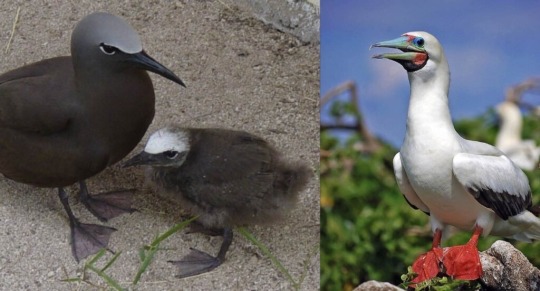
18 years after rats were eradicated, Tromelin Island off the coast of Madagascar is a thriving colony of seabirds once again.
The same story happened over and over during the age of exploration: Europeans brought rats or rabbits on board their ships and dumped them on delicate, pristine island ecosystems.
Hundreds of islands became desolate wastelands this way, damage that has for the most part been reversed, as GNN has reported, in one of the greatest conservation stories ever told.
Now, this small teardrop of sand, rock, and palm trees in the southern Indian Ocean, is the most recent example of conservationists being able to completely rewild a landscape back to a period before European contact.
Spanning just 1 square kilometer, Tromelin Island is now home to thousands of breeding pairs of 7 seabird species like the masked and red-footed boobies.
By 2013, these two species had doubled in number from the precarious, rat oppressed lows of just a handful in 2004. In the subsequent 9 years, white terns, brown noddies, sooty terns, wedge-tailed shearwaters, and lesser noddies all came back on their own initiative.
Matthieu Le Corre, an ecologist at the University of Reunion Island, told Hakkai Magazine how, in some cases, restoring seabird populations can be a tricky thing based on the particular species’ nesting habits.
On other islands where Le Corre has worked, they’ve had to install robotic bird calls and life-size replicas to convince the birds the island is a safe place to nest again. But Tromelin Island needed no such help, since these terns, noddies, and boobies are much more dispersed in their nesting patterns.
“In terms of conservation, it’s a wonderful success,” Le Corre says.
#good news#environmentalism#science#environment#nature#animals#conservation#birds#tromelin island#madagascar#animal protection#baby animals#sea birds#invasive species
1K notes
·
View notes
Text

Bridges for Animals to Safely Cross Freeways Are Popping Up Around the World
#wildlife#wildlife conservation#solar punk#solarpunk#animals#animal protection#protect animals#Nature#Canada#Forest#road safety
6 notes
·
View notes
Text
💔
Source : Tik Tok @elisa.de.la.ferme
#agneau#lamb#agnello#cordero#lamm#amour inconditionnel#unconditional love#tendresse#tenderness#câlin#cuddly#animals#innocent animals#animal protection#animals rights#bébé#bébé animal#baby#baby animals#vegan#veganism#végétarien#vegetarian#vegetarisch#vero emilie#vero emilie vegan
66 notes
·
View notes
Text
How about this challenge?
In a few days, on January 1, 2025, it's Veganuary again. This is basically a challenge to live as a vegan (or at least eat and drink vegan) for one month. This website, which is available in several language, provides you with free advice on veganism and plenty of recipes which are also suitable for beginners:
#go vegan#vegan food#veganism#plantbased#animal rights#animal protection#veganuary#challenge#vegan recipes#plant based#recipes#cooking#baking#kitchen#challenge in january#january 2025#new years resolution
10 notes
·
View notes
Text
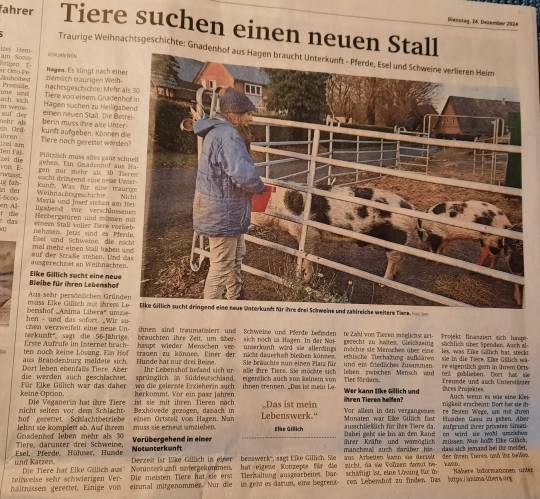
Drittes Mal das sie in der Zeitung ist.
Sie hat seit fast zwei Jahr eine Weide gegenüber von unseren Island Pferden. Anfänglich war auch alles gut.
Sie hat die Weide von einer Frau übernommen, die ihre zwei Pferde, einen Schimmel und einen Fuchs, nicht ernähren konnte, weil ihr das Geld gefehlt hat.... Warum man die Tiere dann nicht weg gibt, ist mir ein Rätsel....
Ich habe beiden damals Heucops gekauft und ihr Wasser aufgefüllt, weil sie mir so leid taten...
Der Schimmel musste eingeschläfert werden, der Fuchs lebt immer noch bei dieser Elke. Auf dieser Weide stehen derzeit der Fuchs und drei Esel. Waren mal nur zwei Esel, dafür aber mit zwei Ponys (und der Fuchs).
Sie wurde vor ein paar Monaten von ihrem Mann rausgeworfen und lebte in einem Wohnwagen, der auf der Weide steht. Wäre ja kein Ding, wenn sie nicht 7 Hunde mitgebracht hätte, die den ganzen Tag darin eingesperrt wurden.
Es ist schon des öfteren ein Hund durch ein Fenster entkommen und durch unsere zum Glück verkehrsarmen Straßen gelaufen.
Vor einem Monat sind die Hunde so ausgerastet, dass sie den gesamten Wohnwagen hin und her bewegt haben. Eine Pferdebesitzerin hat darauf die Polizei gerufen (, die nie kam 😒) und dann durch eine Freundin noch der Tierschutz, die aber nix tun konnten, außer einen Zettel an die Wohnwagentür zu kleben....
Tierschutz ist ein Witz in diesem Land... (Natürlich behindert durch die Gesetzlage und Vorschriften und Vorschriften und Vorsc....)
Ich will nicht, dass irgendwer, nur weil er obdachlos ist, seine Tiere, hier Hunde, abgeben muss. Elke hat es derzeit sicherlich schwierig genug, aber es ist der Umgang mit den Tieren, der halt überhaupt nicht gehen.
Ihre Situation ist sicherlich furchtbar, aber das hat sie zu einem irrationalen, aggressiven Menschen gemacht.
Nachdem der Tierschutz weg war (,ist die Polizeistreife an uns vorbei gefahren... Wir sind so abgelegen, keine Chance, dass die nicht "für" uns da waren), ist Elke gekommen und explodiert. Sie und die Pferdebesitzerin hätten sich fast geschlagen, wenn unsere Leute nicht breits da gewesen, um sie bei diesem Ordeal zu unterstützen. Sie war fix und fertig mit den Nerven und hatte auch Sorge das Elke auch noch in dem Wohnwagen sein könnte, weil sie niemand erreichen konnte.
Sie hat auch Pferde weiter draußen auf der Weide, von denen ich nichts wusste, die nicht mal Wasser haben. Laut Tierschutz ist das okay, weil sie in dieser Jahreszeit ausreichend Wasser "aus anderen Quellen" finden. Ja, is klar... Als ob das ausreichen würde...
Ich hatte nur spärlich Kontakt mit ihr. Ich hab ihr geschrieben, wenn der Zaun kaputt oder ein Esel mal abgehauen war. Ich habe mal die Litze vor dem Unterstand komplett repariert, weil da einfach alles auf dem Boden lag, als ich um 8 Uhr früh zu den Isländern gekommen bin.
Das war weit vor ihrer Obdachlosigkeit. Tiere retten ist schön und gut, aber sie hat sich nach meiner Erfahrung immer nur um das wirkliche Minimum gekümmert.
Letzten Sommer war sogar ein Fernsehteam vom NDR bei ihr lol. So ein Gutmensch...
Meine Leute denken gerade ernsthaft darüber nach die Zeitung zu kontaktieren. Sie haben Videos und die Aussage von dem Vermieter, der uns seinen Stall überlassen hat, der direkt gegenüber "ihrer" Weide wohnt.
Egal was für ein Mensch sie ist: Helft ihren armen Tieren. Die verdienen das nicht.
#what a “hero” lmao#elke gillich#dogs#horses#donkeys#animals#tierschutz#animal protection#mine#german#german stuff#hagen im bremischen#osterholz#cuxhaven#long post
6 notes
·
View notes
Text

Behind the scenes ...
#vegan#veganism#ethics#ethical veganism#ethical living#animal protection#animal activism#animal activist#animalrights#animal liberation#farm animals#stop killing animals#animal rights#animal farm propaganda#animal husbandry#veganmemes#veganmeme#vegan memes#veganhumor#jhoumous
10 notes
·
View notes
Text
#social justice#current events#animal rights#wolves#wolf#wolf therian#animal welfare#animal#animals#animal protection#amazing animals#cool animals#wildlife#wildlife protection#important#important to know#nature#naturecore#ecology#ecosystem#environmentalism#environmental#environmental movement#environmental health#environmental justice#environmental awareness
11 notes
·
View notes